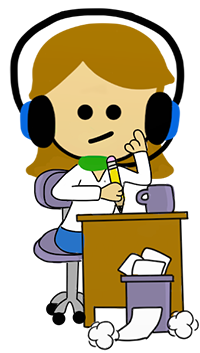Adjectives with ED and ING endings
10 May 2014 by Diane
When describing feelings the -ED form of the adjective is used.
Example:
I felt bored when I watch the news.
I was really excited during the volleyball game.
NOT
I felt boring when I watched the news.
I was really exciting during the soccer match.
When describing things the -ING form of the adjective is used.
More CORRECT examples:
Documentaries are really interesting. | The sickness is worrying. |
The news is depressing. | The test was confusing. I was confused when I was taking the test. |
Some common adjectives that can be used in both an -ED and an -ING form:
annoyed | annoying | amused | amusing |
bored | boring | challenged | challenging |
confused | confusing | depressed | depressing |
dissapointed | disappointing | disgusted | disgusting |
encouraged | encouraging | embarrassed | embarrassing |
entertained | entertaining | excited | exciting |
fascinated | fascinating | frightened | frightening |
frustrated | frustrating | interested | interesting |
irritated | irritating | overwhelmed | overwhelming |
relaxed | relaxing | satisfied | satisfying |
shocked | shocking | surprised | surprising |
surprised | surprising | tired | tiring |
terrified | terrifying | worried | worrying |

